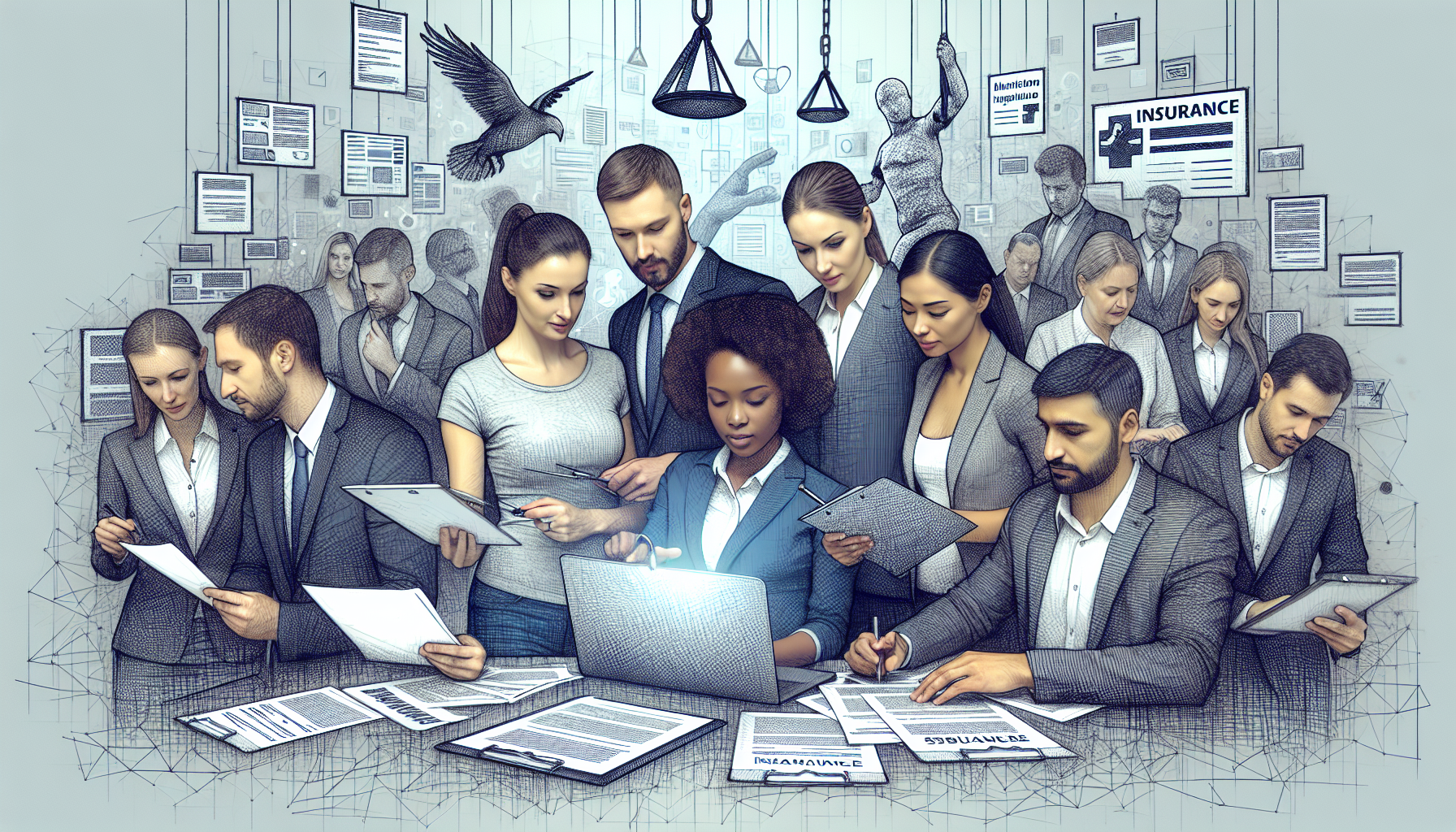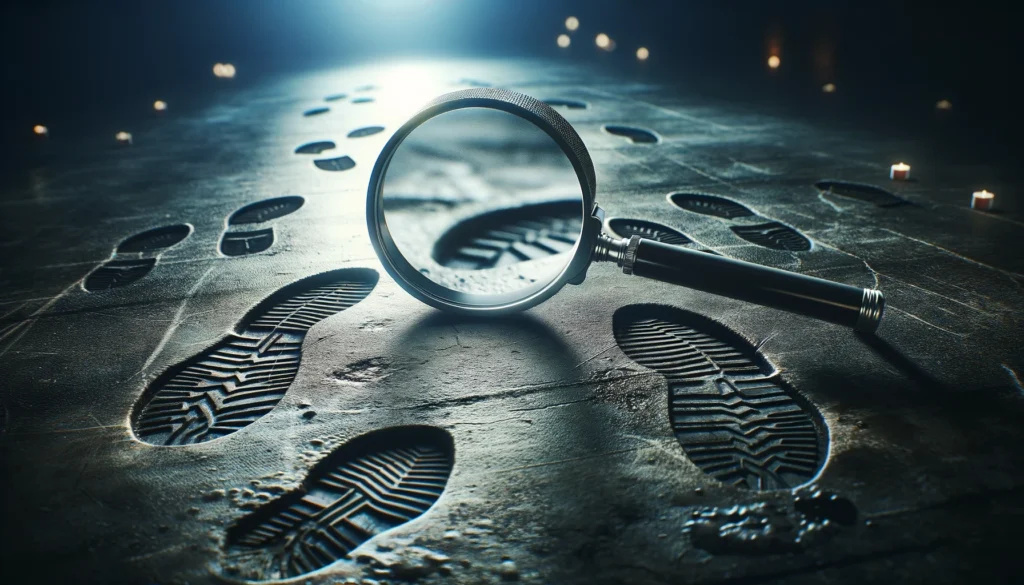
Opening Arguments: The Case for AI-Assisted Communication
In the intricate landscape of criminal trials, paralegals often face significant challenges in effectively communicating with expert witnesses. These challenges can lead to delays, miscommunications, and can heavily impact the preparation and outcome of a case. Enter ChatGPT, an AI-powered tool poised to revolutionize this vital aspect of legal work. By streamlining interactions and offering sophisticated responses, ChatGPT enhances the efficiency and accuracy of paralegal tasks. This article delves into how ChatGPT can transform the way paralegals engage with expert witnesses, ensuring seamless communication and improved case outcomes.
Understanding the Role of Expert Witnesses in Criminal Trials
Expert witnesses play a pivotal role in criminal trials, offering specialized knowledge that can clarify complex aspects of a case for both the judge and jury. Their insights, derived from their extensive expertise, can provide critical evidence that supports or refutes key arguments presented in court. Effective communication with these experts is, therefore, paramount to ensure their testimony is both accurate and persuasive.
Paralegals are often tasked with the responsibility of coordinating with expert witnesses, which includes gathering necessary information, clarifying technical details, and ensuring their testimony aligns with the case strategy. This requires not only a deep understanding of the law but also the ability to translate complex jargon into understandable language. Effective communication is essential for preparing comprehensive reports, affidavits, and ensuring the expert is well-prepared for depositions and courtroom testimonies. Given these demands, leveraging a tool like ChatGPT can significantly enhance the efficiency and effectiveness of these interactions.
Also read:
Decoding ChatGPT: A Paralegal’s New Best Friend
ChatGPT, developed by OpenAI, is an advanced language model designed to understand and generate human-like text based on the input it receives. For paralegals, this means having access to a sophisticated virtual assistant capable of drafting documents, generating thoughtful questions for expert witnesses, and even providing preliminary interpretations of complex data.
With its ability to process large volumes of information quickly and provide contextually relevant responses, ChatGPT can serve as an indispensable asset in legal settings. It accelerates routine tasks, allowing paralegals to focus on more nuanced aspects of case preparation. By incorporating AI into their workflows, legal professionals can achieve greater precision and efficiency, ultimately enhancing their overall productivity.
Also read:
Laying the Groundwork: Essential Preparations for Using ChatGPT
Before integrating ChatGPT into their daily operations, paralegals need to undertake several preparatory steps to ensure smooth and effective use of the tool. The following guidelines outline essential preparations:
- Resource Setup: Ensure that you have access to the ChatGPT platform and any necessary software integrations.
- Basic Training: Familiarize yourself with ChatGPT’s capabilities through tutorials, webinars, and documentation provided by OpenAI. Understanding the tool’s strengths and limitations is crucial.
- Data Privacy: Implement data privacy protocols to ensure that sensitive information handled by ChatGPT is protected. Establish clear guidelines for what type of information can be input into the AI.
- Initial Customization: Customize ChatGPT’s settings to align with your organization’s specific legal requirements. This may involve tailoring the tool to recognize and respond to particular legal terminologies and formats.
With these foundational steps in place, paralegals can begin to harness ChatGPT’s potential, transforming their communication strategies with expert witnesses.
Also read:
Crafting the Perfect Prompt: The Art and Science
One of the most critical aspects of effectively using ChatGPT is crafting precise and effective prompts. The quality of the input directly influences the quality of the output. Here are some innovative techniques and examples to help paralegals master the art of prompt creation:
Clear and Specific Instructions: Provide clear and specific instructions to guide ChatGPT’s responses.
Example: “Draft a summary of Dr. Smith’s testimony on forensic DNA analysis, highlighting key points relevant to the defense’s argument.”
Contextual Information: Include relevant contextual information to ensure ChatGPT understands the broader scenario.
Example: “Given the discrepancy in witness reports about the time of the crime, draft questions to clarify Dr. Jones’s analysis of the time-stamped video surveillance.”
Layered Prompts: Use a series of interconnected prompts to build a more detailed response.
Example:
1. “Generate a list of possible questions for our forensic accountant expert, focusing on financial discrepancies.”
2. “Based on the generated questions, draft a follow-up prompt to explore potential answers the expert might provide.”
Iterative Refinement: Refine prompts based on initial outputs to achieve the desired level of detail and accuracy.
Example: Start with, “Explain the impact of latent fingerprints on the case,” and refine based on feedback: “Provide a detailed explanation of how latent fingerprints were identified and their significance in linking the suspect to the crime scene.”
Mastering the art of prompt creation ensures that paralegals can extract high-quality information from ChatGPT, enhancing their interactions with expert witnesses.
Also read:
Nuanced Conversations: Creative Techniques for Enhanced Interaction
To maximize the utility of ChatGPT, paralegals can employ advanced methods for nuanced conversations. These techniques allow for more in-depth and dynamic interactions:
- Follow-Up Questions: Use follow-up questions to delve deeper into a topic.
Example: “Expand on the statistical significance of the DNA match found at the crime scene.” - Context Enrichment: Provide additional context or related information to refine responses.
Example: “Considering the chronological inconsistencies in the alibi, how might Dr. Green’s testimony on time-of-death estimation support our argument?” - Thematic Structuring: Organize prompts thematically to cover all relevant aspects systematically.
Example: “Generate a comprehensive outline for Dr. White’s testimony, covering toxicology findings, the chain of custody, and potential cross-examination questions.”
By utilizing these creative techniques, paralegals can enhance the depth and relevance of their interactions with ChatGPT, ensuring that expert witnesses are well-prepared and their insights are thoroughly integrated into the case strategy.
Also read:
Behind the Scenes: Confidentiality and Ethical Considerations
Maintaining confidentiality and adhering to ethical guidelines is crucial when using AI in legal settings. Paralegals must ensure that sensitive information is handled with the utmost care and that all interactions with ChatGPT comply with legal and ethical standards. This involves:
- Using encrypted communication channels
- Regularly auditing AI interactions for compliance
- Limiting access to authorized personnel only
Also read:
Integrating AI Output with Legal Documentation
Once ChatGPT has generated responses or drafted content, the next step is to integrate this output seamlessly into legal documentation. Here are a few strategies:
- Review and Edit: Carefully review and edit the AI-generated content to ensure accuracy and adherence to legal standards.
- Consistency Checks: Ensure the AI-generated content is consistent with previously documented case details and legal arguments.
- Standard Formatting: Format the AI output to match standard legal document templates for coherence and professionalism.
By following these strategies, paralegals can effectively enhance their legal documents with AI-generated insights, ensuring both accuracy and efficiency.
Also read:
The Verdict: Reflecting on the Impact of AI on Paralegal Efficiency
The integration of ChatGPT into legal workflows can significantly enhance paralegal efficiency, accuracy, and productivity. By streamlining communication with expert witnesses and aiding in the preparation of comprehensive documentation, AI tools like ChatGPT offer a glimpse into the future of legal work. The potential for increased efficiency and improved outcomes is substantial.
Also read:
Appendix: Quick Reference Guide to Effective Prompts
- Clear Objectives: “Draft a summary of Dr. Smith’s testimony on forensic DNA analysis.”
- Contextual Relevance: “Generate questions for Dr. Jones about the time-stamped video surveillance discrepancies.”
- Iterative Refinement: “Explain how latent fingerprints were identified and their significance in the case.”
- Thematic Structuring: “Outline Dr. White’s testimony covering toxicology findings, chain of custody, and cross-examination questions.”
By utilizing these effective prompts, paralegals can enhance their interactions with ChatGPT, ensuring high-quality outputs and streamlined communication with expert witnesses.


